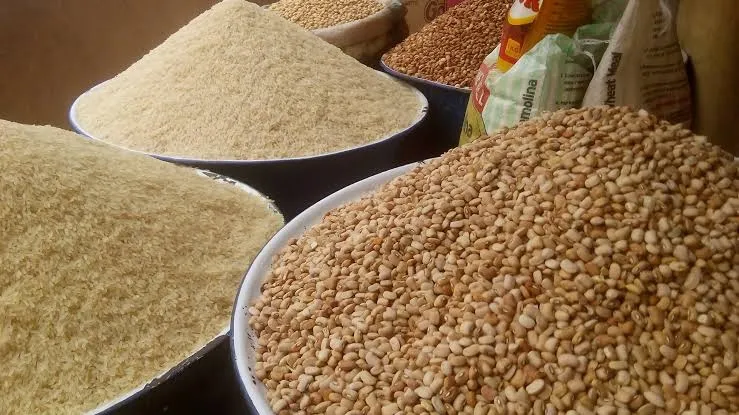A Guide To Shopping for Foodstuff in Nigeria: Where To Find The Best Deals
A Guide To Shopping for Foodstuff in Nigeria: Where To Find The Best Deals
Shopping for foodstuff in Nigeria can be an overwhelming experience for both locals and visitors alike. From the bustling local markets to the convenient online stores, the sheer number of options can make it difficult to know where to start. But with the right knowledge and tips, you can easily find the best deals on foodstuff in Nigeria. This guide will provide you with an overview of the different types of foodstuff available in the country, as well as the best places to shop for them. You’ll learn about the advantages and disadvantages of each option, so that you can make an educated decision on where to buy your foodstuff. Whether you’re looking for fresh produce, imported products, or locally-made specialties, this guide will provide you with the information you need to find the best deals on foodstuff in Nigeria.
Overview of Foodstuff Available in Nigeria
There are many different types of foodstuff available in Nigeria. However, the availability of each type varies from region to region. We’ll take a look at the most common types of foodstuff, along with their advantages and disadvantages, so that you can make an informed decision on where to buy them. Fresh Produce – Fresh produce is available in most markets around the country. You can find a wide selection of fruits, as well as seasonal vegetables. Some of the most common fruits and vegetables you can expect to see are watermelons, plantains, mangoes, oranges, tomatoes, bell peppers, and onions. You can also find imported fruits, such as apples and pears, as well as potatoes and carrots. Grains – Nigerians consume a wide variety of grains, and they’re available in most markets around the country. The most common types of grains available are rice and millet, but you can also find imported grains, such as wheat, barley, and oats. Legumes – Nigerians eat a lot of legumes, including beans, chickpeas, and soybeans. These are very common in local dishes, such as egusi and oha. You can find legumes in most markets and supermarkets.
Advantages of Shopping at Local Markets
There are several advantages to shopping at local markets. One of the biggest advantages is that you can find a wide selection of fresh produce. Many markets will have large, open-air areas dedicated to selling fresh produce. You can find a wide variety of fruits and vegetables, such as watermelons, plantains, mangoes, oranges, tomatoes, and bell peppers. This is the best place to buy fresh produce, as you can inspect it for quality yourself. Local markets also sell locally-made grains, legumes, and spices. They’re a great place to buy local specialties, such as ogi and ewedu. If you want to support local businesses and experience the culture, then you should visit a local market.
Advantages of Shopping at Supermarkets
Supermarkets are convenient places to shop, as they’re open every day of the week, including holidays. Many supermarkets will have regular deals, such as buy-one-get-one-free deals and price reductions. You can find a wide selection of foodstuff at supermarkets, including fresh produce, grains, legumes, and imported products. Many supermarkets will also sell locally-made specialties, such as ogi, ewedu, and various spices. Supermarkets are clean places to shop, which is especially important if you have young children with you. You won’t have to worry about stepping in a pile of trash or a pile of mud.
Advantages of Shopping Online
There are many advantages to shopping for foodstuff online. You can find a wider variety of products, especially imported products, than what may be available at local markets. Some online stores will ship products to Nigeria, so you can shop from home. This is especially useful if you have a limited amount of time to shop. You can order products from the comfort of your own home, then have them delivered to your door. You can also use online stores to buy specialties, such as ogi and ewedu, that may not be available in your region. Online stores are a good place to buy packaged foods, such as cereals, coffee, and cookies. You can choose from a wide variety of products and compare prices. Many online stores also offer deals, such as B2G1 free and discounted shipping.
Advantages of Shopping for Foodstuff in Nigeria
There are many advantages to shopping for foodstuff in Nigeria. You can take advantage of local produce, such as fruits, vegetables, grains, legumes, and spices. You can also buy locally-made specialties, such as ogi and ewedu. These products are fresher than what you’ll find in imported products. You can also support local businesses by shopping for foodstuff in Nigeria. Besides supporting local businesses, shopping for foodstuff in Nigeria is a good way to experience the culture. You can visit local markets and experience the sights, sounds, and smells of local life.
Tips for Shopping for Foodstuff in Nigeria
There are a few tips to keep in mind when shopping for foodstuff in Nigeria. Make sure to wash all produce before eating it. This is especially important for lettuce, tomatoes, and bell peppers, as they’re the most likely to have insects on them. You can find water available for free in most markets. You can also use bottled water, such as Aquafina or Evian, if you prefer. Be mindful of the amount of money you bring with you to the market. You don’t want to be overburdened with items that you can’t carry. You should also know your measurements, such as the weight of items, before you shop. This will make it easier to calculate the cost of your purchases.
Where To Find the Best Deals
You can find the best deals on foodstuff in Nigeria at local markets. This is where you’ll find the freshest produce at the lowest price. You can also find locally-made specialties, such as ogi and ewedu, at local markets. These products are great for gifts. You can visit the outdoor markets in any city in Nigeria to find these deals. You can find imported products at supermarkets, but you’ll pay more for them than you would at local markets. Online stores also sell imported products at a higher price. You can find discounted prices at supermarkets and online stores, but there are no guarantees. The best way to find the best deals on foodstuff in Nigeria is to visit local markets.
Conclusion
This guide has provided you with an overview of the different types of foodstuff available in Nigeria, as well as the best places to shop for them. You’ll learn about the advantages and disadvantages of each option, so that you can make an informed decision on where to buy your foodstuff. Whether you’re looking for fresh produce, imported products, or locally-made specialties, this guide will provide you with the information you need to find the best deals on foodstuff in Nigeria.








LEAVE A COMMENT
You must be logged in to post a comment.